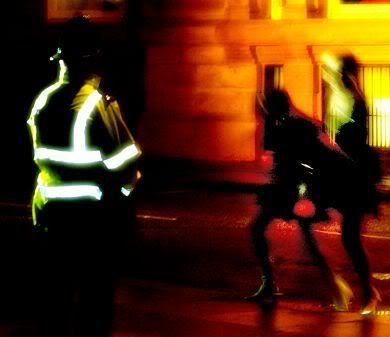Live Music Forum report - the government's reponse
Back in July the Live Music Forum (LMF) reported on how the licensing system should be improved to allow music to live, strive and survive in England and Wales. Five months later the government have responded. You were expecting maybe the cut and thrust of lively debate? Please, that's not the DCMS way.
So what have they said?
Well, they're going to "explore options for allowing certain low risk live music performances to be exempt from licensing requirements" with a consultation in the new year. The LMF's suggestion for defining 'incidental music' was ignored (or 'accepted in spirit') but that's fair enough because it wasn't that great.
The minor variations consultation is invoked a few times in the name of simplifying the application process and they say specifically that "it is very much our intention that applications to vary a licence for live music should be able to benefit from the new proposals".
There's a laugh out loud moment when they address the problem of over zealous or inconsistent Licensing Authority decisions. Get this - "There are several avenues through which applicants can take up grievances, whether it be through the formal appeals process, Judicial Review, Local authority ombudsman or simply through raising issues with their local councillor". Bearing in mind the problems highlighted were tiny groups of people not being able to sing folk songs above a pub due to the increased expense, whichever clown wrote that needs to take a deep breath and screw their head on the right way. Formal appeals process? Judicial review?! Do you know how much time and expense is involved in these? Good grief.
The marquee pledge is a £500,000 scheme to set up some community rehearsal spaces in the areas that need them most. Presumably that wouldn't include London where they could just lay off pirate radio stations for a while and achieve a similar thing at zero cost. Hmm, many a true word spoken in jest.
The rest of the response - working with the Mayor of London to maintain medium-sized venues in London and re-establishing the NUS live music network are applaudable but have nothing to do with licensing, which is what I'm interested in.
In fact, from a licensing point of view this reponse promises nothing new. Either steps have already been taken in the last re-write of the s.182 Guidance and for the rest there's a consultation on the way that will solve all problems. I'm less than convinced that everything is, or will soon be, in a satisfactory state on the licensing side of things. Stay tuned for a big, fat 'I told you so' in 2008.
Oh, and if you want to read the response in full here are some links. First to the press release and also to the PDF download page. Happy reading.




















